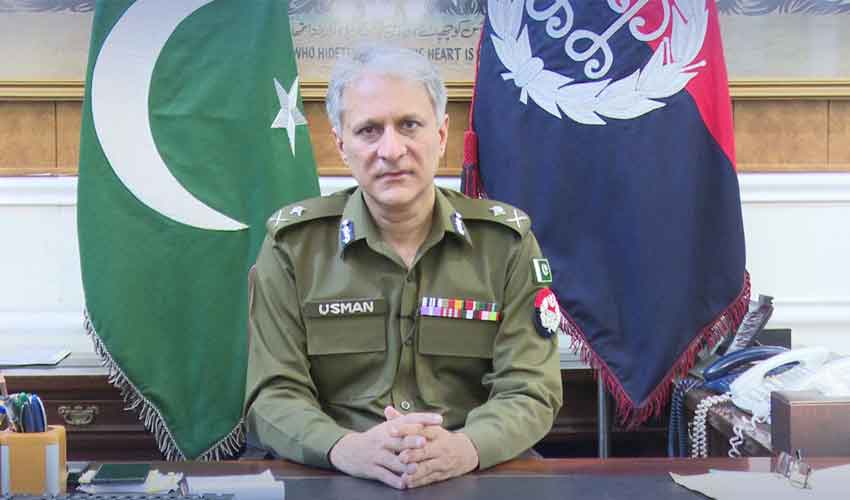Katcha Dacoit Attacks
Punjab Inspector General of Police (IGP) Dr. Usman Anwar has sounded a grave warning regarding the increasing threat of dacoit attacks in the katcha areas, which lie along the border between Punjab and Sindh.
This alert comes just before the recent attack in the Machka area of Rahim Yar Khan, underlining the ongoing security challenges in the region.
In an exclusive interview, IGP Dr. Usman Anwar emphasized that the operation against dacoit gangs in these areas is far from over. He made it clear that the risk of further attacks on police checkposts remains high, reflecting the persistent threat posed by these criminal groups.
Dr. Anwar underscored the fact that this is not a short-term issue but a long-standing challenge that has plagued the region for years and will likely continue unless significant efforts are made.
One of the critical issues highlighted by Dr. Anwar was the economic and social underdevelopment of the katcha area, which he identified as the root cause of many problems in the region.
The lack of economic opportunities and social infrastructure has allowed dacoit gangs to thrive in these remote areas, exploiting the harsh terrain and fluctuating river conditions to evade law enforcement.
Dr. Anwar also pointed out that the rising water levels in the region’s rivers have exacerbated the situation. The increased water levels have led to greater movement among dacoit gangs, who use the riverine areas to their advantage, making it difficult for security forces to track and apprehend them.
He remarked that even after a decade, the challenges posed by these criminals in the katcha area would likely persist unless comprehensive solutions are implemented.
To address the growing threat, Dr. Anwar revealed that the Punjab Police have established 70 strategically placed posts near the riverine areas. These posts are designed to prevent dacoits from infiltrating populated areas and crossing into Punjab from neighboring regions like Sindh.
The IGP noted that these posts have played a crucial role in creating resistance against the dacoits, thereby preventing them from spreading their influence into more densely populated areas. Dr. Anwar also highlighted the successes of the ongoing operations against notorious dacoit gangs such as the Shar Gang and Andhar Gang.
He credited the coordinated efforts between the Sindh and Punjab police forces, which have been instrumental in disrupting the activities of these criminal groups. In terms of technological advancements, the IGP disclosed that thermal imaging cameras have been installed at various checkposts and border areas to enhance surveillance capabilities.
Additionally, the police force is in the process of acquiring surveillance drones and telescope guns, which will further strengthen their ability to monitor and respond to dacoit activities in the challenging terrain of the katcha areas.
Dr. Anwar also acknowledged the vital support provided by the Pakistan Army in these operations. He explained that the Army has supplied modern weapons and equipment from its own resources, significantly bolstering the police force’s ability to combat the dacoit threat.
The IGP added that plans are in place to purchase more drones and equipment to maintain the momentum of the ongoing operations.
Following the recent attack in Rahim Yar Khan, Dr. Anwar informed the media that a successful operation had been conducted in the area, resulting in the killing of the main suspect involved in Thursday’s attack and injuring four to five others.
He emphasized the importance of continued intelligence-based operations and the strengthening of checkpoints in the katcha area to prevent future incidents.
Dr. Usman Anwar’s warnings and the steps being taken by the Punjab Police underscore the seriousness of the situation in the katcha areas.
The ongoing efforts to combat the dacoit threat, coupled with technological advancements and strategic cooperation with the Sindh Police and Pakistan Army, are crucial in ensuring the safety and security of the region.
However, as Dr. Anwar pointed out, addressing the underlying economic and social issues remains key to achieving lasting peace in these troubled areas.


